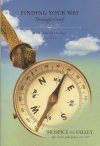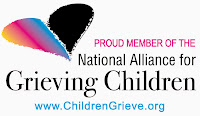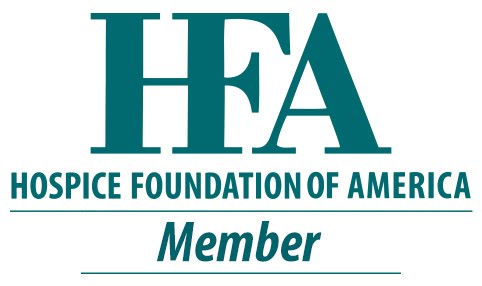 |
Hope is not a dream but a way of making dreams become reality. ~ James Womack
A reader writes: Apparently there is a syndrome in which a year or two after a parent learns that their baby/child has a severe disability, that parent, often the mother, has a sort of crisis and behaves out of character. This has recently happened to my wife. Over a year ago, our daughter (then 8 months) was diagnosed as being 98% deaf. Can you help identify the syndrome's name, if indeed it has one?
My response: I'm so sorry to learn of your baby daughter's severe hearing impairment. I do not know the name of the syndrome you describe, and I do not know your wife, but it seems to me that hers may be a normal reaction to a very abnormal situation. I can only imagine how heartbreaking it must have been for both you and your wife to receive this disturbing news. When we grow up, find the love of our life, get married and make a baby together, it is only human to expect the fulfillment of our dreams: to have a perfect child who will be blessed with all the good things life has to offer and all the best we as parents have to give. When this does not happen, when some of us discover that our beloved baby has physical or mental challenges that will have monumental consequences, not only for our baby but for us as a couple as well, the news can be devastating. We are flooded with overwhelming and conflicting feelings of fear, denial, betrayal, anger, guilt, bitterness, sorrow, isolation and despair. Thus I suspect that much of your wife's reaction to this situation is normal and understandable.
That said, I think it's extremely important that she find some way to identify, express and work through all these conflicting feelings. Such feelings are neither right or wrong, good or bad — they just are, and they can eat her alive if she doesn't find a way to deal with them.
Have you investigated what support services are available for parents of hearing impaired children in your home community? Your local library and the World Wide Web are invaluable sources of such information. Using your browser's search engine, you might try typing in the keywords "child, deafness, parents, support groups" to see what comes up for you. (See, for example, Hearing Loss Support Groups; For Parents of Children with Hearing Loss; American Society for Deaf Children and Center for Early Intervention on Deafness.) Do explore your options for online learning and online grief support.
Sharing one's feelings, reactions and experiences with another (a trusted friend or family member, a therapist or counselor, someone on the Internet, a clergy person or in a support group comprised of other parents with hearing impaired children) gives you a safe place to express yourself, helps you understand that what you're feeling is normal, and may give you the hope that if others have found a way to survive a situation like this, then you will find your own way, too. One of the best ways of dealing with situations such as yours is to find other parents whose experiences may be similar to your own. They can empathize with you in ways that no one else can understand, offer wonderful suggestions and resources you may not even be aware of, and give you hope that if they can cope with this difficult diagnosis in their own child, then so will you and your wife find a way to cope with your daughter's condition as well.
Your story makes me think of a piece that I've posted years ago on the Comfort for Grieving Hearts page of my Grief Healing website. I share it with you now in hopes that it will offer you and your wife some comfort and some insight:
The loss of a dream is yet another kind of death. After Emily Perl Kingsley's child was born with Down syndrome, she was asked to describe the experience of raising a child with a disability. This essay was her effort to help people who have not shared that unique experience to understand it and imagine how it would feel. But her words speak just as well to any of us who've lost our dream of how we expected our lives to be.
Welcome to Holland by Emily Perl Kingsley
When you're going to have a baby, it's like planning a fabulous vacation trip - to Italy. You buy a bunch of guidebooks and make your wonderful plans. The Coliseum. Michelangelo's David. The gondolas in Venice. You may learn some handy phrases in Italian. It's all very exciting. After months of eager anticipation, the day finally arrives. You pack your bags and off you go. Several hours later, the plane lands. The flight attendant comes and says, "Welcome to Holland." "Holland?!" you say. "What do you mean, Holland? I signed up for Italy! I'm supposed to be in Italy. All my life I've dreamed of going to Italy." But there's been a change in the flight plan. They've landed in Holland and there you must stay. The important thing is that they haven't taken you to a horrible, disgusting, filthy place full of pestilence, famine and disease. It's just a different place. So you must go out and buy new guidebooks. You must learn a whole new language. And you will meet a whole new group of people you would never have met. It's just a different place. It's slower-paced than Italy, less flashy than Italy. But after you've been there for a while and you catch your breath, you look around, and you begin to notice that Holland has windmills, Holland has tulips, Holland even has Rembrandts. But everyone you know is busy coming and going from Italy, and they're all bragging about what a wonderful time they had there. And for the rest of your life, you will say, "Yes, that's where I was supposed to go. That's what I had planned." And the pain of that will never, ever, ever go away, because the loss of that dream is a significant loss. But if you spend your life mourning the fact that you didn't get to Italy, you may never be free to enjoy the very special, the very lovely things about Holland.
— Reprinted in Abigail Van Buren's Column,
The Arizona Republic, October 2, 2000
I don't know whether your wife is a writer, but I know of an outstanding book that you might want to consider giving her, entitled Writing to Heal the Soul: Transforming Grief and Loss throughWriting by Susan Zimmermann. When her daughter developed a neurological disorder that left her unable to walk or talk, this author dealt with her devastating feelings of loss by putting those feelings in writing. This book offers moving stories, practical writing exercises and wisdom as a guide to thriving in the face of crisis - and your wife may feel a special connection to this author. That is just one suggestion, of course. There are many other resources available to you and your wife, if you're willing to make the effort to find them. Mourning the loss of your baby's hearing, coming to terms with it and finding ways to live with it is very hard work, but you do not have to do that work all alone.
I hope this information proves useful to you, and when you feel ready to do so, I hope you will let me know how your family is doing. In the meantime, please know that you, your wife and your daughter are in my thoughts and in my heart.
Your feedback is welcome! Please feel free to leave a comment or a question, or share a tip, a related article or a resource of your own in the Comments section below.
If you’d like Grief Healing Blog updates delivered right to your inbox, you’re cordially invited to subscribe to our weekly Grief Healing Newsletter. Sign up here.
Related:
- An uplifting story about the grief of having a disabled child
- Cerebral Palsy Guidance
- Cerebral Palsy Group
- Disability: Links to Resources
- Disenfranchised Grief: Mourning The Loss of a Dream
- Grief and The Special Needs Child
- Grief Isn't Weakness
- Grieving The Future I Imagined for My Daughter
- My Friend Meniere: Standing Up to Disability
- When A Dream Is Shattered
- Why I Hate "Welcome to Holland"
- Wonder Moms

























No comments:
Post a Comment
Your comments are welcome!